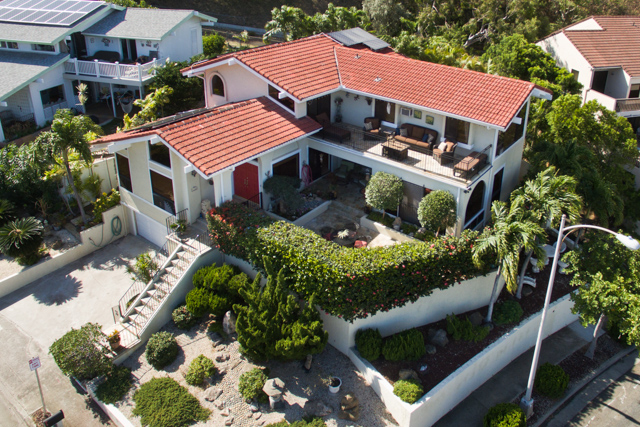 Until the 1970’s, single wall home construction dominated Hawaii’s landscape. Unless you are already familiar with this unique architecture style, you may not be aware that there are significant differences between single wall homes and double wall homes. Here is a look at single wall homes versus double wall homes.
Until the 1970’s, single wall home construction dominated Hawaii’s landscape. Unless you are already familiar with this unique architecture style, you may not be aware that there are significant differences between single wall homes and double wall homes. Here is a look at single wall homes versus double wall homes.
What is Single Wall Construction?
Single wall homes are constructed of exterior walls that are typically built of redwood tongue and groove planks. These redwood planks are butted up edge to edge vertically in order to construct the exterior walls. Once constructed, these exterior walls become both the exterior and interior surfaces of the home. The electrical wiring of a single wall home is run on the surface of the walls and covered with wood trim.
Single wall construction was popular due to the tropical climate. Since home heating is not necessary in Hawaii and insulation is not needed, single wall construction was a perfectly logical option for building a home. The majority of traditional Hawaiian homes were built with single wall construction. Many people appreciate the traditional look and feel of these single-wall homes which were built to exist in harmony with nature.
Double Wall Homes
Many homes in Hawaii are newer construction homes and are built like homes you would find on the mainland. Newer construction homes are double wall homes. Double walls homes are constructed with mainstream construction techniques including interior walls and insulation. The electrical wiring is run between the exterior and interior walls.
While heating systems are not necessary in Hawaii, many homes do have air conditioning. Double wall homes have insulation and are better at retaining the cool air in the home. This can reduce the cost of air conditioning and increase efficiency.
Single Wall Home Issues
Single wall homes can be a great option for someone who wants a home that holds true to traditional Hawaiian style. Since it was once the dominant form of construction, many homes in Hawaii are single wall homes. However, single wall homes have some serious potential issues that should be taken into consideration.
Single wall homes are more vulnerable to high winds than double wall homes. Double wall homes in Hawaii are constructed with wind resistive techniques that make them less vulnerable to high winds. The significant lack of wind resistance is a serious flaw in single wall homes. However, there are upgrades that can be performed on a single wall home in order to increase the home’s wind resistance.
that can be performed on a single wall home in order to increase the home’s wind resistance.
Single Wall Home Renovation
Renovating a single wall home can be a serious undertaking. Planning to perform even a simple kitchen renovation can have some major implications. Everything from the wiring to the plumbing will typically have to be replaced and brought up to code. As such, single wall home renovations can be extremely costly.
Single Wall vs. Double Wall
Double wall homes have some significant advantages over single wall homes. The insulation can keep the high costs of air conditioning down. Double wall homes are also constructed with wind resistant techniques and offer better protection from storms. However, single wall homes can be modified to increase wind resistance and can also be fitted with whole house fan systems instead of air conditioning. Ultimately, personal preferences for modern versus traditional will help determine which type of home is right for you.
-
“Helping people make wise decisions one home at a time.“ ~ Trevor Drinen
Signature Inspections Hawaii, LLC, is FULLY Insured & “NATIONALLY CERTIFIED” by InterNACHI. InterNACHI also requires inspectors to continue their education through accredited courses, conferences, online learning, etc… and annual Inspector Certificate Testing in order to hold a current certificate.
Contact Us Today || Book You Inspection Now
Trevor Drinen | CPI Certified Professional Inspector # NACHI16122702
*For a more detailed explanation of the inspection process please feel free to visit: InterNACHI Residential Standards Of Practice and InterNACHI Code Of Ethics .






